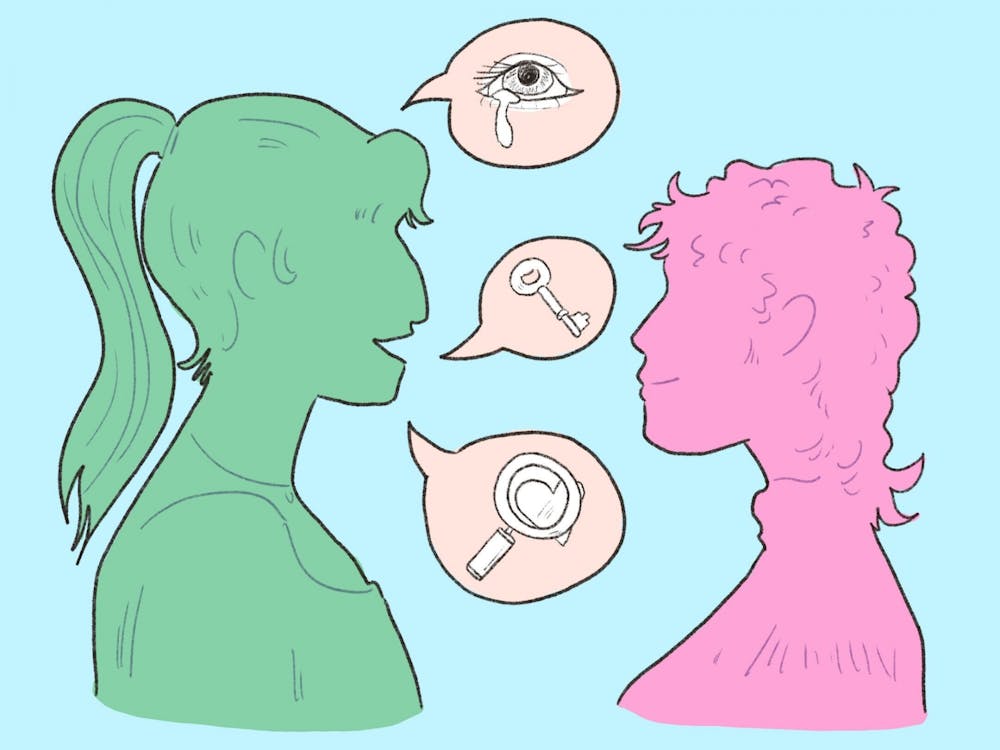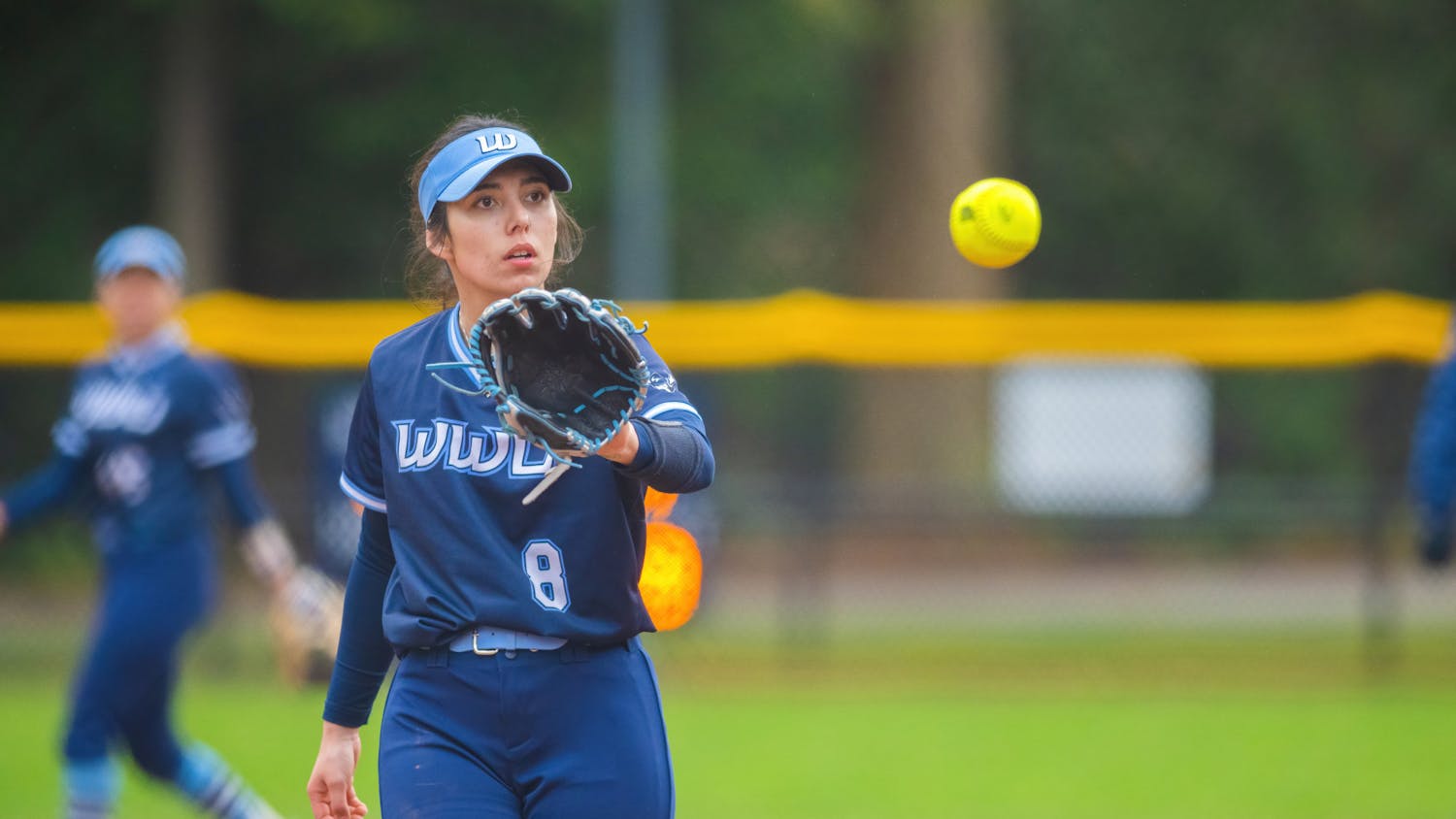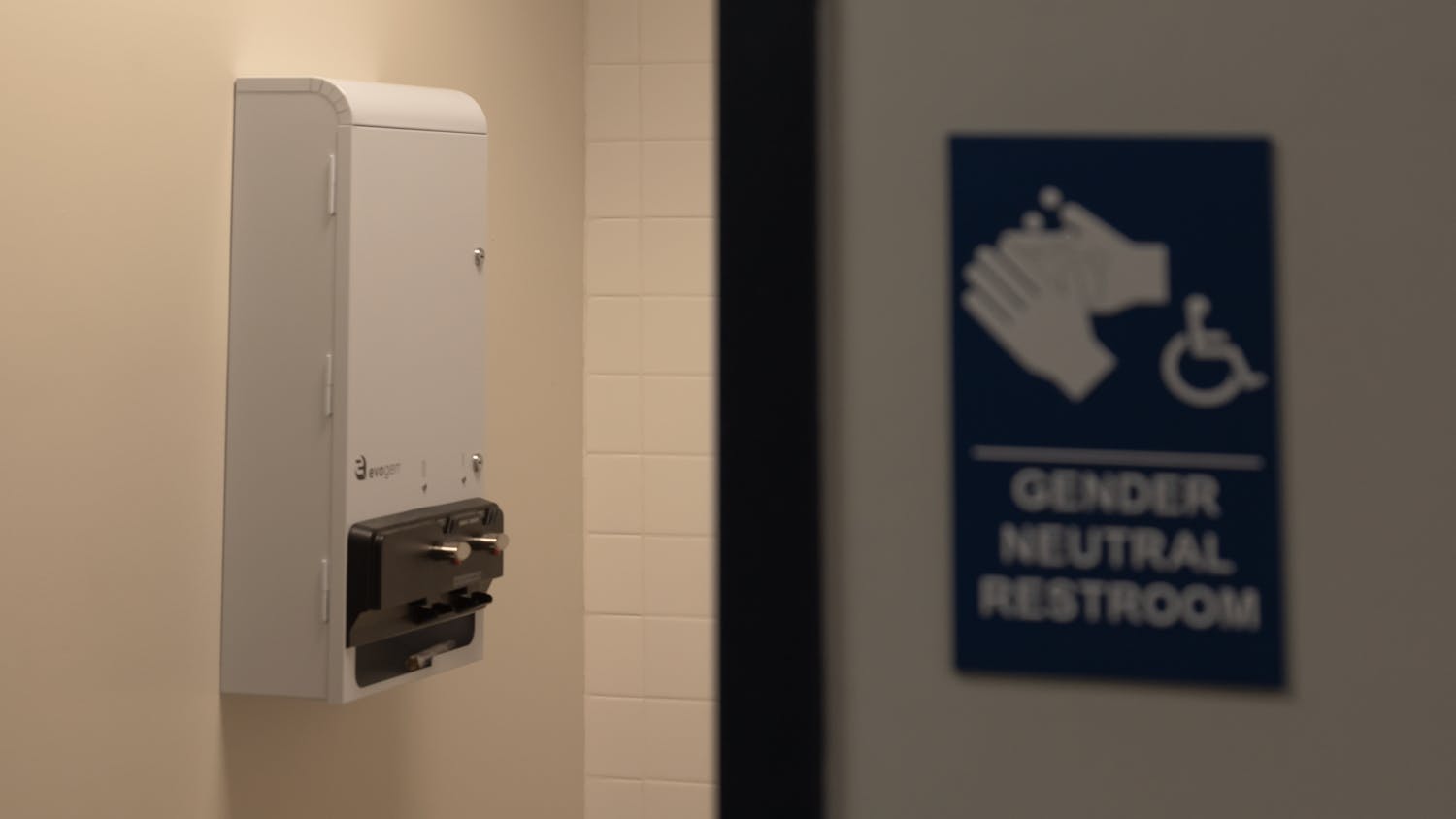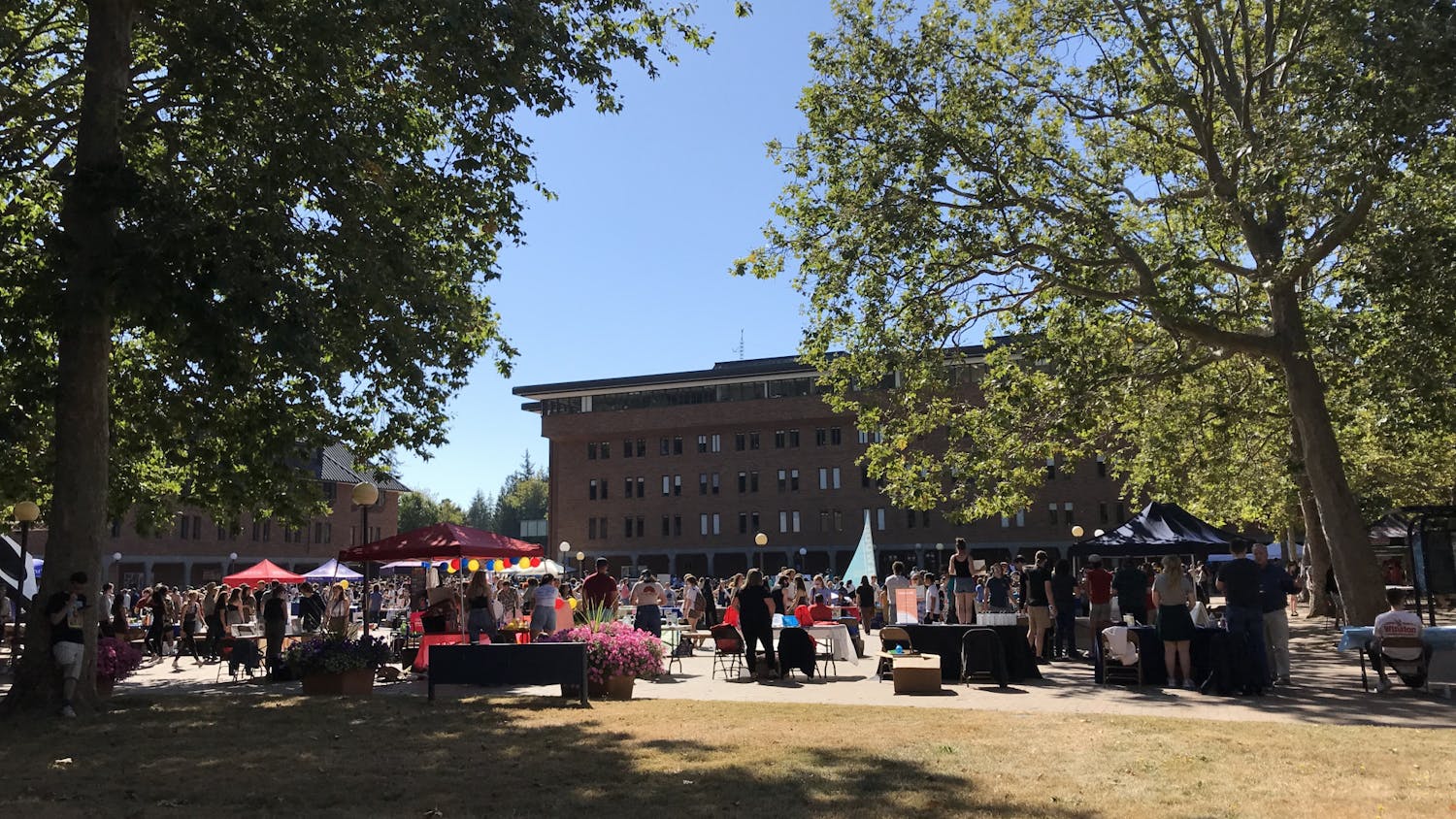We hand out apologies like trading cards. It’s as if saying “I’m sorry” has become another type of pleasantry. Something muttered under our breath as we squeeze past someone to get off the elevator --- “I’m sorry.” When we’re running late to a meeting we say “my apologies,” or sometimes we’ll even say it just because we feel socially obligated to --- “I’m so sorry, but could you…”
Are we ever actually sorry? When did apologies become so meaningless? Sure, there are times when an apology is warranted. But if someone squeezed past me on an elevator and didn’t apologize, I’d think they’re disrespectful.
So when we are actually sorry when we know we’ve screwed up, how do we give a genuine apology? How do you truly rectify a situation when you’ve messed up?
According to Marlon Familton, a family and relationship counselor in Bellevue, the first step to repairing a relationship should be taking ownership of the mistake. Often we assume that doing so claims guilt, but accountability doesn’t equal guilt. For many people, it’s difficult to separate these ideas.
Familton’s book, “10 Easy Steps or Less!: Train your partner to treat you better,” says that “being right has no place in a close relationship.” It is important to let go of who is morally superior when it comes to conflict.
“Taking ownership means [realizing] that I’m going to be responsible for how I impact people,” Familton said.
This doesn’t always mean that one single person holds all the blame. For many of us, it’s emotionally charged actions that lead to needing an apology; below-the-belt comments we say and instantly regret in the middle of a fight. Regardless, we must take ownership of our actions.
Before you do anything else, ask yourself, “Am I actually sorry?”
If the answer is no, then stop. Don’t give a disingenuous apology. You must get to the step where you can truly take ownership. Although this might take some time, it’s critical to be authentic when taking accountability and giving someone an honest apology.
The offended party might think they’ll feel better by just hearing the words “I’m sorry,” and to some, that could seem like the simple solution. In reality, this is a waste of airspace. “Sorry” doesn’t solve any issues, it’s just a band-aid to patch up underlying issues.
Janet Bishop, a senior human resources leader at Boeing, has to mediate workplace conflicts on a daily basis and often sees coworkers just wanting to hear the words “I’m sorry.”
Bishop strives to keep this type of behavior out of the workplace, as she knows it will be unproductive. Instead, she asks the parties questions like: “What specifically do you want them to apologize for?” and “What do you think an apology will solve? How is this going to make you feel better?”
Taking ownership is a challenging step and should feel like it. It might cause you to feel self-loathing, disgust or disappointment with yourself. To realize that you’ve caused someone pain is gut-wrenching. People often try to avoid this at all costs, but it is necessary.
Tim Reading had to take this first step while a part of a 12-step recovery program. Reading stated, “I’m an addict.” He expressed that he struggled with addiction to multiple drugs throughout his 20s. This program led him to sobriety, and he has now been clean for four years.
The program was one essential part of the recovery process. Step nine of the program asks participants to seek out those hurt by their addiction and “make direct amends,” Reading said.
“Making amends is scary, and a lot of people have relapsed during this step,” Reading said. “I was really afraid and didn’t do them for a while, and it made sobriety very vulnerable.”
The next step Familton recommends when apologizing is expressing remorse. This might come as placing ourselves in the other's shoes and verbalizing empathy and validation. Familton says these are “crucial skills in any relationship.” This is a point where you might feel especially vulnerable, which is an uncomfortable space for a lot of people to be in.
Bishop said she thinks vulnerability and transparency are vital aspects of a meaningful apology. There are multiple ways that we can become more comfortable with being vulnerable. One recommendation is to “seek reciprocity.” When we're vulnerable with people, they’ll become vulnerable with us.
If you truly feel remorseful and are in a place where you can express it, then saying “I’m sorry” is the right next step. Verbalizing remorse and accountability can carry a lot of weight for both parties when it’s done meaningfully.
When Reading made his amends with his parents regarding his addiction, he said that he felt an immediate sense of relief from the guilt that had been weighing on him.
“That’s the reason why it works for people like us. You know you’re gonna have to face that [situation] again. Doing it at the right time and correctly keeps us from repeating [past behaviors],” he said.
Time was a common theme that Familton, Bishop and Reading brought up when discussing what can make an apology good or bad. All three recommended working toward apologizing slowly and not rushing to repair a relationship.
When we try to rush into apologies, we cannot make a true commitment to the person we hurt. Making a commitment is the third step in Familton's chapter on repair. Sure, we can make a promise to someone that we’ll change, do better or be a different person, but if there’s no follow-through, trust is broken yet again.
“It's like, if you don't intend to change, you shouldn’t apologize. You should just walk away from all of this,” Reading said.
Using rationales can also make an apology difficult to accept.
“[By] including ‘this is how I was feeling’ and ‘this is what was going on for me’ and ‘this is why I did what I did,’ that dilutes the actual repair process. Because anytime I'm explaining my viewpoint, I'm now defending my viewpoint, which is going to feel like I'm just justifying hurting you,” Familton said.
If we are actually at the point where we can deliver the apology, Reading, Bishop and Familton all said to do it in person and to write out what you want to say.
Bishop specifically recommended asking for the space to have this difficult conversation ahead of time.
“You’ve been thinking about it in your head and formulating your thoughts. Whereas the other person is not prepared, so they might not be intellectually or emotionally ready to take that on and to listen,” she said.
At some point in all of our lives, we have all caused pain to another person. Accepting that is extremely difficult and it’s even harder to apologize for the pain we’ve caused. But it’s the only way to experience growth and make a commitment to not harm again.
I originally wrote this piece as an op-ed assignment during fall quarter. When I began brainstorming for the assignment, I thought back to an experience I had in high school when a classmate overheard a conversation between a friend and me about my fears of having an individualized education program.
IEPs are often created for students with disabilities. For each student, it can include a variety of accommodations, services or aids. In my case, it meant having to go back to eighth-grade math and work my way back up. I would take tests for the rest of my classes in a separate room, and I received extended time on assignments and tests.
I desperately wanted help, as I was drowning academically. I had basically failed my freshman year of high school, which is partly what prompted the subsequent testing and diagnosis of my learning disability. And while I was screaming for help and so badly wanted to jump into the IEP program, I saw my use of accommodations as a brightly colored sign screaming, “THERE’S SOMETHING WRONG WITH ME!”
I feared what my friends and other classmates would say, what names they would call me or that they would think I was only passing my classes because I had an IEP.
Those fears came to a head when that classmate, eavesdropping on an intimate conversation during study hall, asked “Aren’t IEPs for …” finishing that question with the word that has greatly harmed the neurodivergent community.
I could instantly feel the tops of my ears begin to burn, my stomach turning and a lump in my throat forming as I tried to figure out what to do next. My emotions boiled to the surface and I said nothing. I turned around and tried my best to slowly breathe in an attempt to avoid crying.
I ended up starting my IEP shortly after this incident. I honestly can’t remember what finally made me say “OK.” Maybe it was my mom pushing, or my desire to possibly start enjoying school or maybe it was the fact I was already failing geometry two weeks into the school year. Regardless, I slowly began to accept my learning disability and the accommodations that came with it.
But I never forgot that moment, standing face to face with my fears of how people would think of me, and how they would treat me because of my learning disability. Over the next three years, I would see that classmate in the halls and immediately look away, trying my best to avoid eye contact.
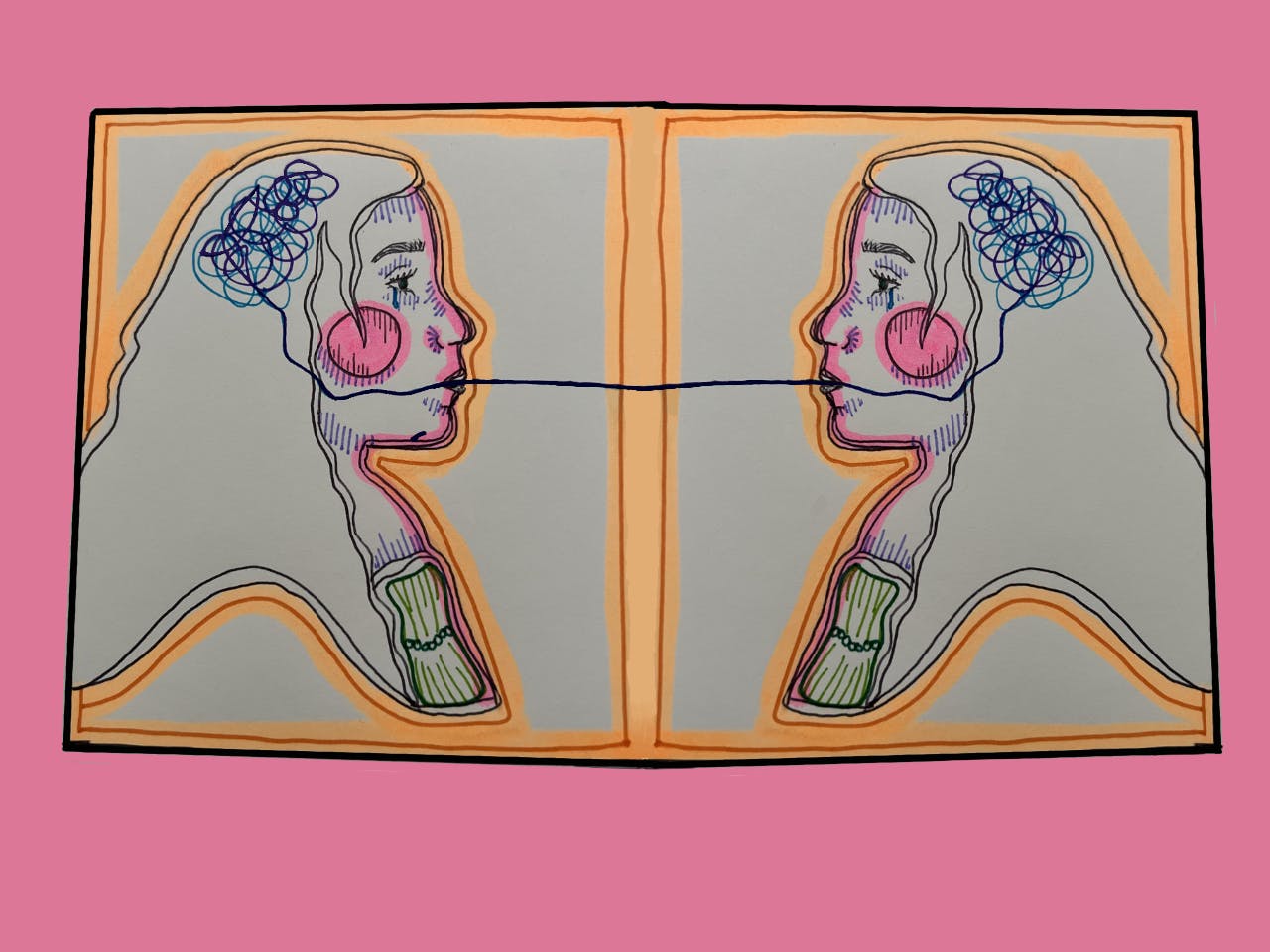
Caption: A freeform line illustration showing a mirrored image of a person having a conversation. Oftentimes, the first step to delivering a meaningful apology is to take time and partake in self-reflection. // Drawing by Abby Price
The end of my senior year rolled around. A distant friend had started dating that classmate. I can’t remember exactly how the gossip train went, but, basically, it had gotten back to that classmate that I remembered what they’d said to me sophomore year.
Besides the initial feelings of anger and disgust after learning that this story was relevant once again, I didn’t think too much of it. I assumed that the classmate would deny it, or that no one would care about the use of that word.
I was wrong.
As I sat at the lunch table chatting with my friends about our upcoming plans for prom and senior ditch day, a slow hush fell over the table as my friends watched the classmate approach us.
Turning around, I watched as the classmate sat down next to me. A familiar wave of emotions hit as I waited for them to speak; I felt my stomach dropping and my throat tightening.
“Hey, I’m really sorry for what I said sophomore year. That wasn’t cool of me,” they said.
I was shocked. Out of all the things I thought they would say, I never thought I would ever hear those words come out of their mouth. I was even more shocked that I could hear and feel the sincerity and genuineness in their voice.
Almost 10 years since the initial conversation, and five years since the apology, I still think about both from time to time. Looking back, I think of how hard that must’ve been to own up, as an 18-year-old, and mean it. It really changed my perception of that classmate and how people can change.
I’m a lot more accepting of my learning disability and not ashamed of using accommodations. I proudly talk about both with anyone who's willing to listen.
I ran into that distant friend and former classmate, still dating all these years later, while waiting to catch a returning flight home this past summer. We chatted about what we’re all doing now, work, school and general life post-graduation topics. Sometimes I wonder if I wouldn’t be as accepting of my disability if that classmate never apologized, but who knows?
That random encounter made me think about apologies, redemption and how to repair relationships when someone has been hurt. Knowing how to give a meaningful apology is something every adult should be capable of doing.
In any type of relationship – co-workers, friends, roommates, romantic or family – someone is bound to get hurt and someone is bound to hurt someone else. But it’s what we do after that’s the most important.
I hope that this piece provides you with some tools to help you repair a relationship or helps you recognize when someone close to you is truly trying to change and correct their previous actions.
In either position, the road to a meaningful apology will be difficult, but I encourage you to try. Try to find forgiveness, try to make amends and try to find comfort in the fact that you’re trying.

Tallie Johnson (she/her) is the opinions and DIO editor for The Front this quarter. She is majoring in journalism with a public relations focus. Tallie enjoys covering arts and entertainment, bringing attention to nonprofits, and sharing her opinion on everything and anything. In her free time she spends time with friends, family, and her many animals.
You can contact her at talliejohnson.thefront@gmail.com.


